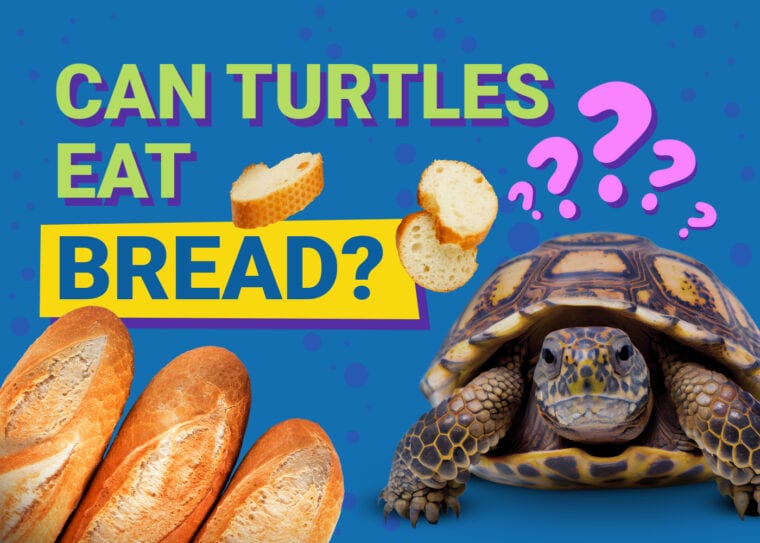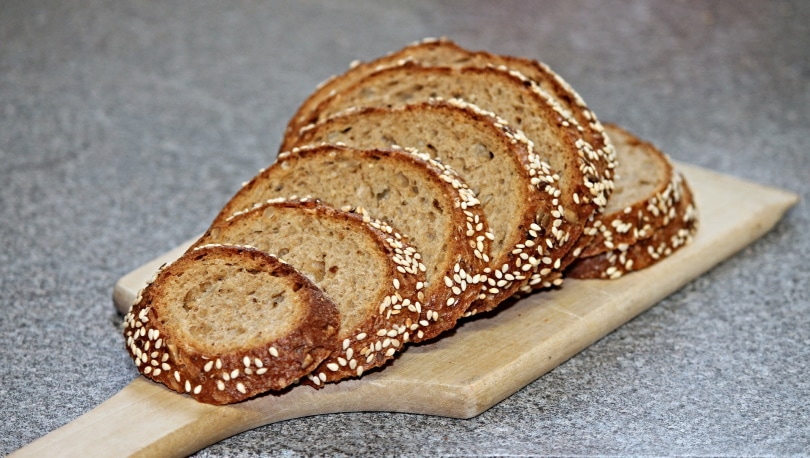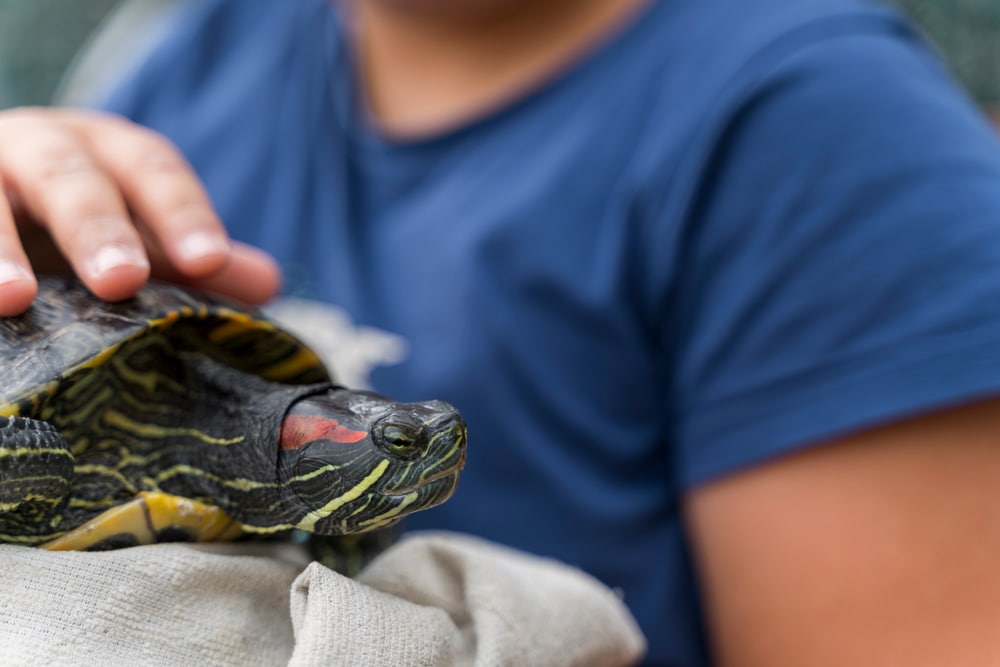
Anecdotally, many pet turtles will eat nearly anything that you put in front of them. But not everything is good for them to eat, especially not as an everyday snack. For example, can turtles safely eat bread? If so, are there any real benefits?
The answer is that bread is non-toxic to turtles, but it has no valuable content for them whatsoever. So, your turtle shouldn’t eat bread. However, if they nabbed a small piece, they will likely be okay. Read on to learn more, along with a few turtle-friendly meal tips.

Bread Nutrition Facts
Source: USDA

Turtles Shouldn’t Eat Bread
You might not realize that bread has a variety of indigestible ingredients for turtles. We are so used to considering bread as a healthy grain item that is in the biggest portion of our food pyramid.
However, the ingredients found in bread are not conducive for a turtle’s health. This applies to all freshwater turtles, as well as land turtles, such as the North American box turtles (under the genus Terrapene).
The Natural Turtle Diet
Generally speaking, most pet turtles are omnivores; however, their nutritional composition is often more animal-food heavy when they are juveniles and more plant-based when they are adults.
Processed foods, such as bread, have no nutritional value for turtles that they can’t get in other areas of their diet. Even though a small taste here and there won’t hurt them, it also won’t help. When possible, you should stick with other turtle-safe snacks that offer an array of nutritional content for your reptile friend.

Turtles Can’t Fully Digest Bread
Some breads contain dairy products, such as milk. Since turtles eat animal- and plant-based matter, you might not think about dairy being such a bad choice for them. However, dairy products contain lactose, which your turtles cannot break down in their system, as their bodies do not have the correct enzymes to make that happen.
Also, if your turtle doesn’t have an interest in the bread piece that you place in their enclosure, it can quickly muddy up the water, leaving behind debris that clouds up the tank. This can make your turtle’s enclosure unhygienic.
Different Types of Bread
If you want to give your turtle a small taste of this baked good, steer clear of bleached pieces of bread, aiming for a more natural loaf, such as whole grain.
We must emphasize, though, that even whole-grain bread isn’t ideal for feeding your turtle. The only time your turtle should ever consume bread is if it is by mistake, and you shouldn’t let it happen again. Continuously feeding your turtle non-species-appropriate food items could result in malnutrition and other digestive health problems.

Will Turtles Eat Bread?
If you toss a few pieces of bread into your turtle’s enclosure, they might not hesitate to gobble it up. Don’t let this lead you to believe that it’s good for them, though, because it is not.
That said, if they only consume a few small pieces of bread, it won’t have any real dire consequences for their systems. Some turtles might just avoid the substance altogether.
Alternative Turtle-Safe Snacks
If you’re digging through your cabinets to find safe turtle snacks to feed your reptile, there are a few items to consider. Please note that these lists aren’t exhaustive. It’s also always best to consult your veterinarian before incorporating any food item into your pet turtle’s diet.

Final Thoughts
Now you know that turtles shouldn’t eat bread, especially if they have other suitable snacks. However, one small piece of bread won’t immediately harm your turtle. But if you feed bread to your turtle regularly, it can cause serious side effects, such as malnutrition.
Turtles don’t have the enzymes necessary to break down processed foods like bread. Try to give your turtle a wide variety of fresh fruits, veggies, and animal-based products instead, depending on the type of diet the species requires. It is best to further discuss this with your veterinarian.
Related Reads:








